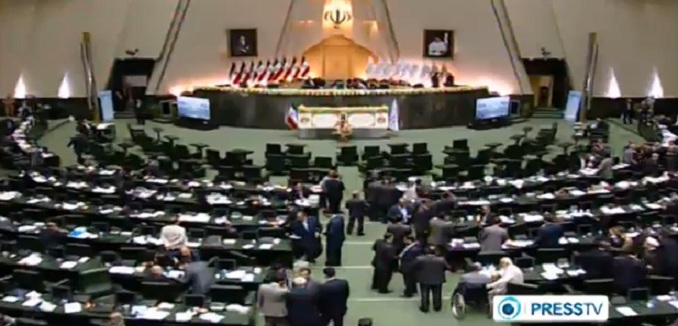Iran has publicly signaled that the international community’s demands that it halt enrichment, codified in half a dozen United Nations Security Council resolutions, is a non-starter.
The New York Times has explained that Iran has installed thousands of new centrifuges in the last year, many of them more sophisticated than ones installed in the past, so that by now the country’s “nuclear abilities have advanced so far” that letting Iranian scientists continue enrichment activities would leave Tehran with the ability to sneak across the nuclear finish line.
The leaked Iranian offer being considered by the international community – which reportedly would allow the Islamic republic to continue enriching uranium and bolstering its capacity to enrich even further – has already been blasted by U.S. policymakers for “allow[ing] them to keep their whole program and all their enriched uranium.”
Nonetheless, the insidery security bulletin NightWatch assesses that there’s been a change in the U.S. position:
This is particularly true with respect to Iran’s nuclear program in that the US is relaxing its longstanding policy position that Iran must halt uranium enrichment. The US appears to be moving to a containment strategy, which it has rejected consistently and as recently as last summer. President Ruhani’s election and change of style not substance marks the turning point.
Instead of halting enrichment, Iranian negotiators have reportedly offered to allow more intrusive inspections of its nuclear facilities.
Even that concession, however, may be beyond the willingness or ability of Iranian President Hassan Rouhani to provide. The Iranian foreign ministry declared on Tuesday that approval of the so-called Additional Protocol that would codify such inspections was reserved for the Iranian parliament. Last Saturday, however, Iranian Parliament Member Mansour Haqiqatpour declared that the Iranian parliament would not consider the Additional Protocol unless the U.S. lifted sanctions.
It is unlikely that U.S. lawmakers would consent to shattering the sanctions regime on the hope that Iran would reciprocate by making what would in any case be a limited concession.
One alternative under consideration, created by Foundation for Defense of Democracies Executive Director Mark Dubowitz and first outlined by Bloomberg columnist Jeffrey Goldberg, would have the U.S. provide limited non-sanctions financial, in the form of now-frozen Iranian assets, in exchange for limited Iranian concessions.
[Photo: PressTVGlobalNews / YouTube]




